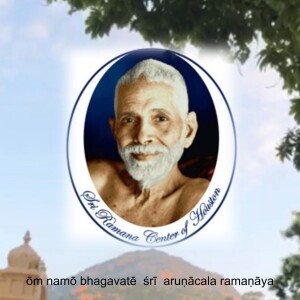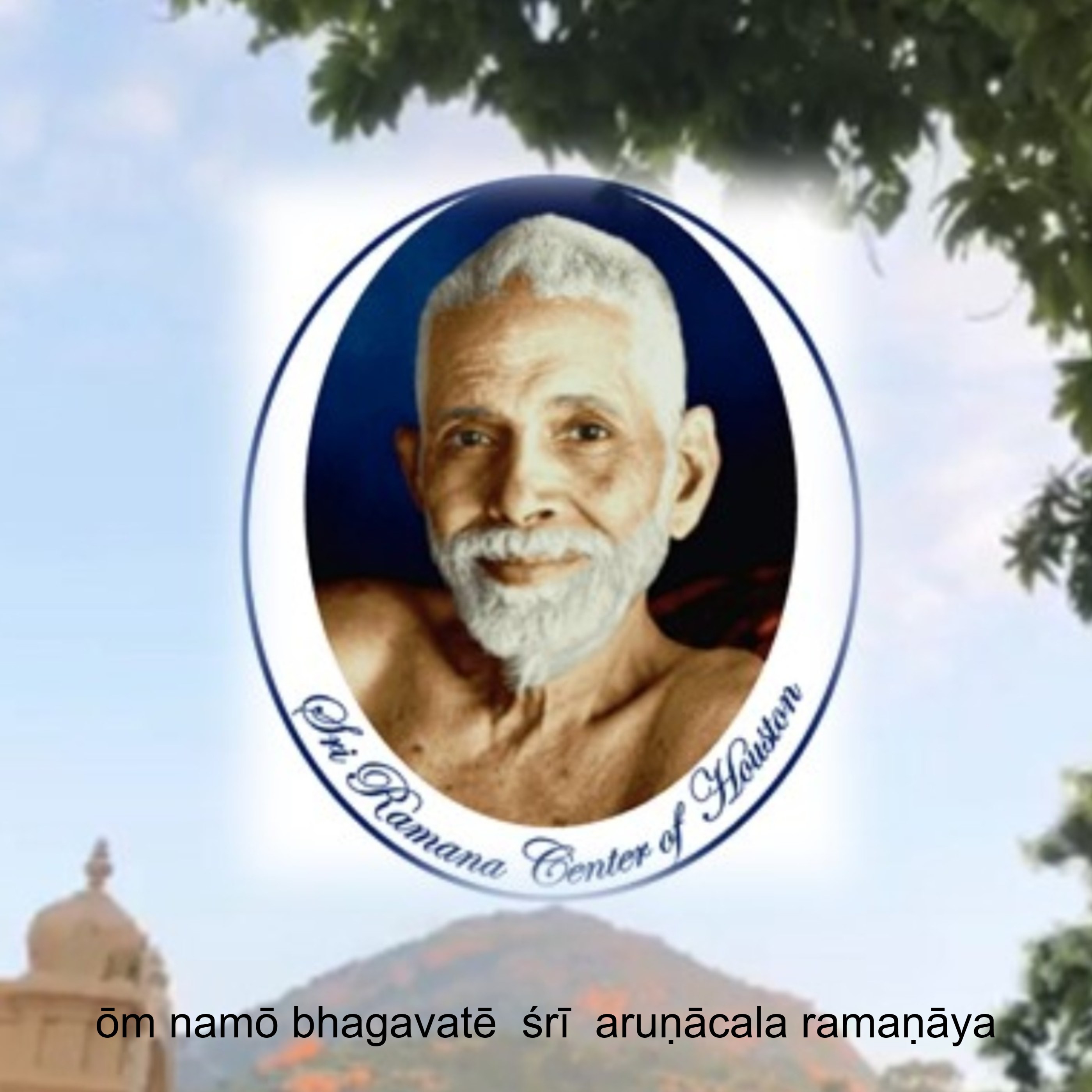Episodes

Tuesday Oct 19, 2021
Upadesa Undiyar verse 28
Tuesday Oct 19, 2021
Tuesday Oct 19, 2021
In a Zoom meeting with Sri Ramana Center, Houston, on 2nd October 2021 Michael James discusses verse 28 of Upadēśa Undiyār:
தனாதியல் யாதெனத் தான்றெரி கிற்பின்
னனாதி யனந்தசத் துந்தீபற
வகண்ட சிதானந்த முந்தீபற.
taṉādiyal yādeṉat tāṉḏṟeri hiṟpiṉ
ṉaṉādi yaṉantasat tundīpaṟa
vakhaṇḍa cidāṉanda mundīpaṟa.
பதச்சேதம்: தனாது இயல் யாது என தான் தெரிகில், பின் அனாதி அனந்த சத்து அகண்ட சித் ஆனந்தம்.
Padacchēdam (word-separation): taṉādu iyal yādu eṉa tāṉ terihil, piṉ aṉādi aṉanta sattu akhaṇḍa cit āṉandam.
அன்வயம்: தான் தனாது இயல் யாது என தெரிகில், பின் அனாதி அனந்த அகண்ட சத்து சித் ஆனந்தம்.
Anvayam (words rearranged in natural prose order): tāṉ taṉādu iyal yādu eṉa terihil, piṉ aṉādi aṉanta akhaṇḍa sattu cit āṉandam.
English translation: If one knows what the nature of oneself is, then beginningless, endless and unbroken existence-awareness-happiness.
Explanatory paraphrase: If one knows what the nature of oneself is, then [what will remain existing and shining is only] anādi [beginningless], ananta [endless, limitless or infinite] and akhaṇḍa [unbroken, undivided or unfragmented] sat-cit-ānanda [existence-awareness-happiness].
Michael also discusses the Sanskrit version of this verse, namely verse 28 of Upadēśa Sāraḥ:
किंस्व रूपमि त्यात्म दर्शने ।
अव्य याऽभवाऽऽ पूर्ण चित्सुखम् ॥
kiṁsva rūpami tyātma darśanē
avya yā’bhavā” pūrṇa citsukham
पदच्छेद: किम् स्वरूपम् इति आत्म दर्शने अव्यय अभव आपूर्ण चित् सुखम्.
Padacchēda: kim svarūpam iti ātma-darśanē avyaya abhava āpūrṇa cit-sukham.
English translation: In seeing oneself, what is one’s own real nature, imperishable unborn full awareness-happiness.
Explanatory paraphrase: When one sees oneself [by investigating] what svarūpa [one’s own real nature] is, [what will exist and shine is only] avyaya [immutable and imperishable], abhava [unborn], āpūrṇa [full, whole or complete, implying what is infinite] cit-sukham [awareness-happiness].
While discussing the meaning and implication of this verse and answering questions about it Michael also refers to and/or discusses the following passages from Bhagavan’s writings:
Upadēśa Undiyār verses 14, 19, 20, 23, 24, 25, 26 and 27
Bhagavad Gītā Sāram verse 9
Uḷḷadu Nāṟpadu verses 24 and 30
Āṉma-Viddai verse 2
Upadēśa Sāram verse 20
Śrī Aruṇācala Akṣaramaṇamālai verse 43:
தானே தானே தத்துவ மிதனைத்
தானே காட்டுவா யருணாசலா
tāṉē tāṉē tattuva mitaṉait
tāṉē kāṭṭuvā yaruṇācalā
பதச்சேதம்: தானே தானே தத்துவம். இதனை தானே காட்டுவாய் அருணாசலா.
Padacchēdam (word-separation): tāṉē tāṉē tattuvam. itaṉai tāṉē kāṭṭuvāy aruṇācalā.
English translation: Arunachala, oneself alone, oneself alone is the reality. Show this yourself.
Explanatory paraphrase: Arunachala, oneself alone, oneself alone is the reality [or ‘oneself alone is oneself’ (‘I alone am I’) alone is the reality]. Show [me] this yourself.
Nāṉ Ār? paragraphs 1, 6 and 14
Śrī Aruṇācala Padigam verse 2
This episode can also be watched as a video: 2021-10-02 Sri Ramana Center, Houston: Michael James discusses Upadēśa Undiyār verse 28.


Comments (1)
To leave or reply to comments, please download free Podbean or
🌺🙏🌺
Thursday Oct 21, 2021
To leave or reply to comments,
please download free Podbean App.